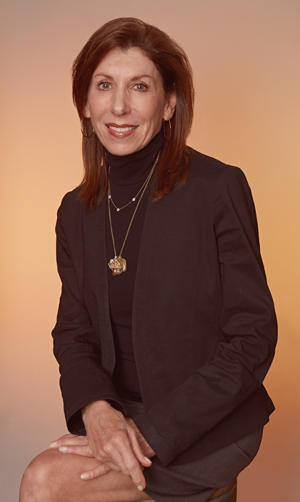VC-backed rivals. A new mansion tax. A softening luxury market. The Real Deal talked to six players in New York City’s residential space about the new pain points they’re feeling in a sector that’s getting squeezed from all sides. Below, Barbara Fox on the benefits of keeping her boutique firm small.
Read the full story — “Tales from the front lines” — here
Barbara Fox
Fox Residential

Barbara Fox
It’s been 30 years since Barbara Fox founded her brokerage, Fox Residential. One of the city’s last remaining independent firms, the company developed a niche in Upper East and Upper West Side co-ops but later expanded throughout Manhattan and, about five years ago, to Brooklyn. The firm claims to have closed $97.1 million in sales in 2018. As larger brokerages continue to gobble up the smaller players, Fox talked to TRD’s Mary Diduch about what’s it like to run her 40-agent firm.
I was 21 years old when I moved to New York from North Carolina, by way of Boston. I got a job working for Doubleday Publishing with one of the big editors.
But I realized I needed to do something where nobody limited how much money I could make.
My brother-in-law Joseph Hilton, of MHP Real Estate Services, was in commercial real estate in New York. He introduced me to Alice Mason, the grande dame of residential real estate at the time, and later to the president of Cross & Brown [whose residential division was later sold to Elliman].
I was 30 or 31 years old at the time, and he hired me to run the firm. My mother was very sick. I ended up leaving and taking off a couple of months that summer until my mother passed away.
My husband said to me, “Why don’t you take off a year and reacquaint with your own life and your friends and have some fun?” A month later, I started my company.
I started it in the worst market, in January of 1989. When I first started, I had two brokers who were my good friends. One of them was very pregnant. One day during a snowstorm we went out canvassing for listings. Everything was done on cards, and you had to really go out and find listings. We were tromping around in a snowstorm talking to doormen. They felt so sorry for us that they kept giving us great listings, and that’s how we thrived for a while.
Technology changed everything. The big firms had the edge because of their expensive websites. But the playing field has leveled; people don’t go to the big firms anymore to find their listings. They go to the big aggregators.
[As a smaller player,] whatever we need to do, we do. When we needed to do a new website, we did a new website. I can do anything I want to do for a client. Very often, if an estate is selling an apartment and a lot of work needs to be done and the estate doesn’t have the cash, I can pay for it in advance. Then they pay me back once it closes.
I’ve been approached by everybody that’s acquiring. If I had a financial issue, I would probably have done something. But I don’t, knock on wood.
We had the best June I think we’ve ever had. Any of the changes that come from the government — like the changes in the mansion tax — take a while to [become] the new normal. I remember when the first mansion tax was instituted and everybody was up in arms: “I’m not buying.” Two months later, they were buying.
This is a more difficult market to navigate. I think in a difficult market, it’s easier for a small boutique firm. We make money the same as everybody else does, maybe a little less, but it doesn’t cost us as much. When you have one of these huge mega-firms, it has umpteen offices — it’s a fortune.
I haven’t considered opening other offices. So much of our business today is done virtually. And about three or four years ago, I looked around and I saw that I had 38 desks and they were always empty. So I decided to scale down the office and do hotel desks. It works brilliantly.
I’ve been very prudent in terms of putting away money for a rainy day. So I haven’t needed massive influxes of money from investors. I don’t worry about downturns because I have a cushion. When you have a huge firm, there’s no such thing as a cushion for downturns; there’s not enough money. Maybe Compass has it, but their investors aren’t going to be happy if they’re not making money.
People always say to me, ‘What’s your five-year plan like?’ I don’t know. I function on a day-to-day basis. I believe in rolling with whatever needs to get done at the time that it needs to be done. I’ve never been a planner. My husband is ready to kill me half the time because of that. I really plan to go out feet first from my office.
